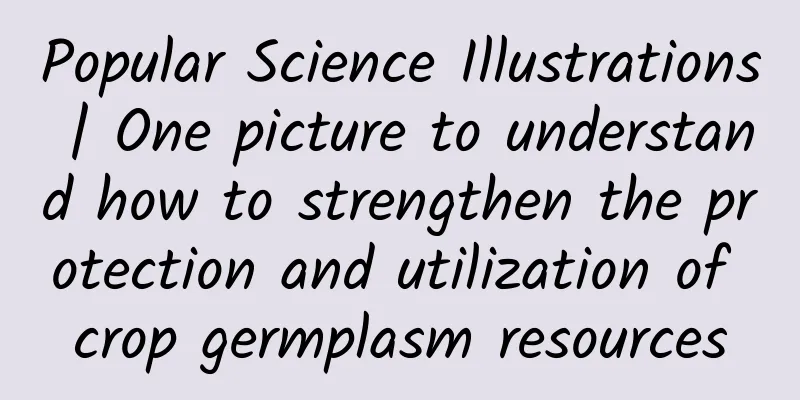One man guards the pass, ten thousand men cannot open it: the small mouth actually hides such a complex ecological environment

|
Open your mouth in front of the mirror and look at what's in your mouth? Teeth, tongue, saliva, tonsils... Most people may only see these more "common" organs in daily life. But you may not know that as the first "checkpoint" of the human digestive system, the mouth also has a huge microbial community, which can be called a "mini world"! It's hard to imagine that your teeth and tongue are in "intimate contact" with these bacteria, fungi, spirochetes, etc. every moment . It can be said that the balance of the oral microecological system is closely related to the health or disease of the oral cavity. 01 The Secret of Oral “Ecology” The natural flora in the mouth has a symbiotic relationship with the human body. The temperature and humidity of the mouth are suitable for the growth and reproduction of many microorganisms. More than 700 kinds of microorganisms, including bacteria, fungi, viruses, mycoplasmas, etc., are colonized in it. Bacteria are the main members, and they are essential to oral health. These microorganisms are distributed in various parts of the mouth, such as the surface of teeth, gum gaps, tongue surface, etc. Most of them are attached in the form of biofilms, and a small number exist freely. Taking teeth as an example, bacteria will form dental plaque biofilms that are firmly attached to the surface of teeth. The microorganisms in this "ecosystem" compete and cooperate with each other to maintain the balance of the oral ecology. (Copyrighted images from the gallery, reprinting may lead to copyright disputes) Most types of bacteria are harmless to the human body. There is a type of bacteria called "probiotics" (such as lactic acid bacteria, bifidobacteria, etc.), which prevent the overgrowth of pathogenic bacteria through a mutualistic symbiotic relationship with host cells and other microorganisms, help digest food, and protect teeth and gums, etc. However, when oral hygiene is poor or immunity is reduced, some pathogenic bacteria may multiply in large numbers, disrupting the balance of the oral ecological environment, causing diseases and even affecting the health of other parts of the body. Streptococcus mutans and Porphyromonas gingivalis are the two most common oral pathogens . Streptococcus mutans can decompose food residues on the tooth surface, producing a large amount of acidic products, leading to tooth demineralization and accelerating the formation of caries. Porphyromonas gingivalis, which is present in large quantities in dental calculus, can secrete inflammatory mediators, proteases, etc., destroying the host's immune system, thereby causing periodontal disease. (Copyrighted images from the gallery, reprinting may lead to copyright disputes) 02 In daily life, what factors affect the oral ecological balance? An unbalanced diet, poor oral hygiene habits, abuse of antibiotics, smoking, and alcoholism can all lead to an imbalance in the oral ecological environment and increase the risk of oral diseases. Common oral disease risks include the following: 1. Unbalanced diet . When you frequently consume high-sugar and high-carb foods and do not brush your teeth in time, the food remaining in your mouth will be decomposed by cariogenic bacteria such as Streptococcus mutans, producing a large amount of acidic substances, which will lead to demineralization of tooth tissue and inhibit the growth of other bacteria, making cariogenic bacteria the dominant bacteria and accelerating the formation of caries. 2. Bad oral hygiene habits . Failure to brush teeth on time and not using dental floss will lead to the formation of dental plaque and tartar, which will make Streptococcus mutans and Porphyromonas gingivalis the dominant bacteria, increasing the risk of dental caries and periodontal disease. 3. The misuse of antibiotics will cause the death of a large number of bacteria. At this time, some fungi such as Candida will take the opportunity to multiply in large numbers, damaging the oral mucosa and causing oral candidiasis. 4. Heavy smoking and drinking may reduce the diversity of oral microorganisms, change the abundance of pathogenic bacteria, and hinder the growth of probiotics, thereby increasing the risk of periodontal disease, caries, and oral cancer. 03 Pay attention to oral health, cleaning the dead corners of teeth is very important: Teach you the most standard teeth brushing posture in the world! Do you know how to brush your teeth? Perhaps many people will answer without hesitation: "Yes!" But do you know that you may be "pretending to brush your teeth" every day! In order to control the risk of oral diseases, you need to master the correct method of brushing your teeth. It is recommended that adults brush their teeth using the horizontal vibrating brushing method, using fluoride toothpaste, once in the morning and once in the evening, each time for 2 minutes. (Photo source: Chinese Stomatological Association) (1) When brushing your teeth, place the toothbrush head at a 45-degree angle on the neck of the tooth, with the bristles pointing toward the tooth root; (2) Vibrate horizontally for 5-6 times in a short distance along the direction of tooth arrangement, and gently brush along the direction of tooth growth, turning the toothbrush handle downward for the upper teeth and upward for the lower teeth; (3) Brush the outer surfaces of all teeth in order, then brush the inner surfaces of the back teeth. Keep your mouth half open when brushing the outer surfaces of the back teeth. (4) When brushing the inner side of the front teeth, place the brush head vertically on the tooth surface and use the front bristles to brush the tooth surface, brushing the upper teeth downwards and the lower teeth upwards; (5) When brushing the occlusal surface, open your mouth wide and brush back and forth in a short distance with a little force. (6) You also need to brush the distal surface of the last tooth. Open your mouth wide and brush from the inside to the outside. (7) Finally, don’t forget to brush your tongue. According to the core information on oral health for the elderly published by the Chinese Stomatological Association, as long as the elderly still have teeth in their mouths, they should brush their teeth every morning and evening, and it is more important to brush their teeth before going to bed at night. In addition, using dental floss and mouthwash and regular teeth cleaning are also important ways to maintain oral health. Oral health is closely related to overall health. In daily life, we should develop good oral hygiene habits, which can not only effectively reduce the incidence of oral diseases, but also create a healthy oral environment for ourselves and others. author: Chen Xiaojing Professor of Xiangya School of Stomatology, Central South University Li Nannan is a second-level researcher at the Hunan Association for Science and Technology and a director of the Hunan Science Writers Association. Reviewer: Si Yan, researcher of the Chinese Stomatological Association, chief physician of the Department of Oral Prevention, Peking University Hospital of Stomatology Produced by: Science Popularization China Produced by: China Science and Technology Press Co., Ltd., China Science and Technology Publishing House (Beijing) Digital Media Co., Ltd. |
<<: Are the "gerbils" that drink water with their ears in "Dune 2" real?
>>: The launch was successful! A picture shows you the interstellar bridge "Queqiao-2"
Recommend
How to operate Douyin on behalf of others? Tik Tok operation plan
The three major rules of Douyin Enterprise Accoun...
Want to get rid of odor? Garlic lovers may try drinking yogurt
Science and Technology Daily, Beijing, September ...
7-day Victoria's Secret peach buttocks creation plan, say goodbye to flat buttocks and transform into a "perky beauty"
7-day Victoria's Secret Peach Butt Plan, Say ...
Information flow advertising | Double 11 is coming, take the 12 sets of e-commerce materials with the best conversion for free!
Double 11 is coming, and it’s time to spend money...
3 counter-common sense points in channel cooperation
Recently, I met with several newly appointed pres...
Why can the price of the same bottle of soy sauce vary by 5 times? The truth behind it...
When it comes to soy sauce, I believe everyone is...
Will there ever be a day when all QR codes are used up?
Author: Wang Rifang Reviewer: Chen Xudong With th...
Community Operation: How to increase community interaction efficiency by 500%?
The theme of this session is to share how to incr...
2022-A weekly report
2022- Weekly Report Resource Introduction: The Xi...
An article analyzing the essence of Tik Tok marketing!
Many friends, especially business friends, have b...
Apple to try adding mental health features to iPhone
Apple is working on a series of new programs to h...
The moon always faces us. Is it rotating? Are there other celestial bodies like this in the universe?
This is a question that many people are puzzled a...
A thorough explanation of fund e-commerce operation methodology
Let’s take a look at the ideas of public funds in...
The most comprehensive analysis of headline information flow advertising! Delivery tips included!
As the largest information flow platform at prese...
6 tips for writing Facebook ad copy with high click-through rates!
A successful Facebook ad is inseparable from eye-...









